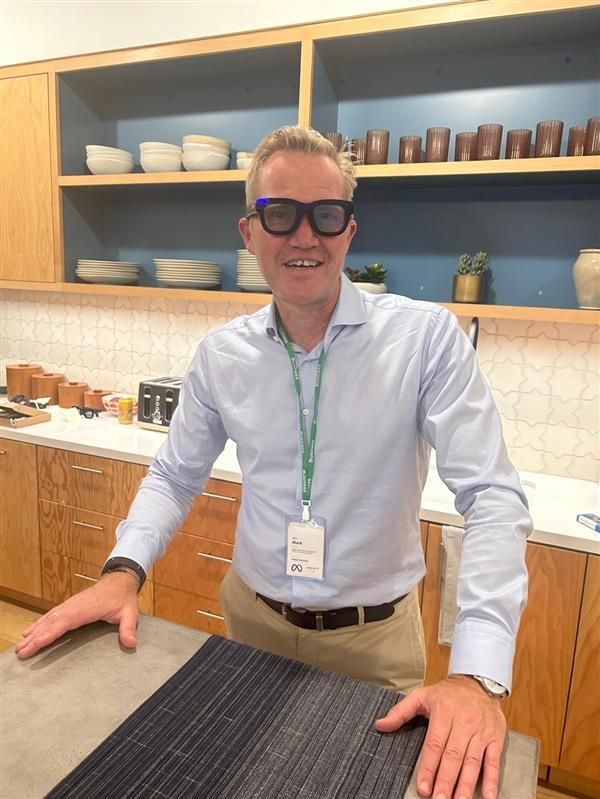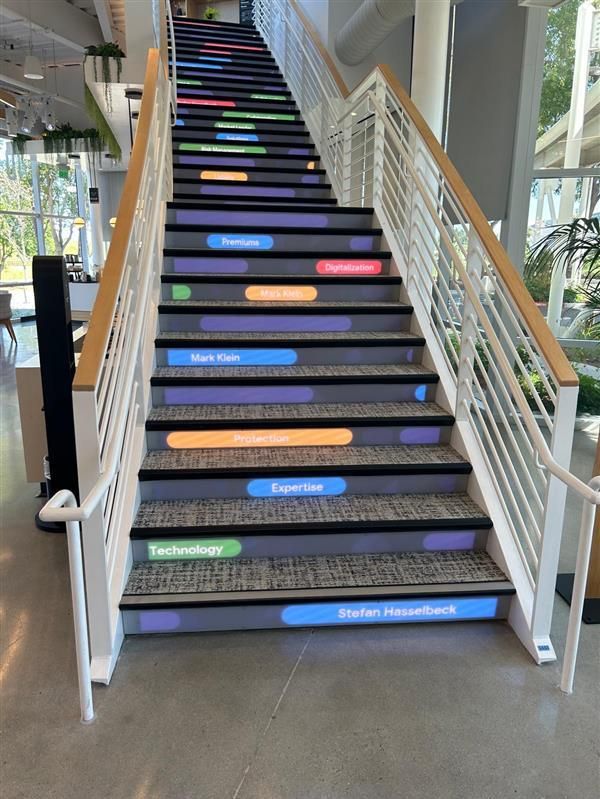Ready-made AI solutions for almost all areas of ERGO
We could have looked at hundreds of applications during our visit. However, we limited ourselves mainly to those that are ‘enterprise ready.’ In other words, solutions that could be implemented immediately by large companies such as ERGO. I found the following companies particularly exciting:
Anthropic wants to use large language models (LLMs) to significantly reduce AI hallucinations. Its own AI assistant, “Claude”, apparently already delivers more accurate and more plausible results.
Foundation, on the other hand, is using AI to automate policy management and claims settlement at insurance companies.
Hawso offers synthetic “twin” datasets with the same statistical characteristics as the original data, but without real-world confidential or personal information. This allows calculations and simulations to be carried out without any individuals being identifiable.
Mechanical Orchard has developed an AI platform that allows old systems to be migrated to modern cloud formats. What’s particularly impressive is that the AI fixes programming errors by itself. Incidentally, we are also shareholders in Mechanical Orchard via the ERGO Corporate Venture Fund – our investment fund for technology companies.
We also got to know AI tools for HR and marketing which perform valuable support functions for the recruitment of new staff and with online marketing, for example. Whereas in 2024 we spoke about generative AI in general terms, one year later we are now already significantly further on the technical side of things. For each of our classes of insurance, there are now AI applications that could help us too with automation.





